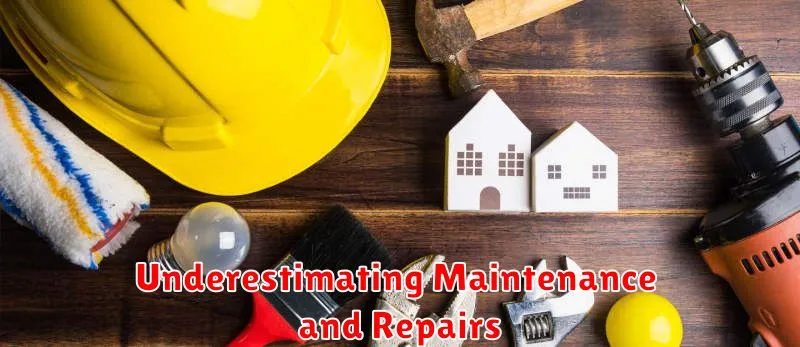Buying your first home is a significant milestone, a blend of excitement and a leap into a major financial commitment. However, navigating the complex world of real estate can be daunting, especially for first-time homebuyers. Avoiding costly mistakes is crucial to ensuring a smooth and successful home-buying experience. This guide will highlight the top mistakes first-time homebuyers should avoid, empowering you with the knowledge to make informed decisions and secure your dream home without unnecessary stress or financial burden.
From overlooking hidden costs to neglecting a thorough home inspection, common pitfalls can easily trap eager first-time buyers. Understanding the process, conducting thorough research, and seeking expert advice can prevent these missteps. This article delves into the most common mistakes, providing actionable insights to help you navigate the intricacies of purchasing your first property and avoid the common traps that can turn a dream home into a financial nightmare. Prepare yourself for the rewarding journey of homeownership by learning what to avoid, and make your first home purchase a truly positive experience.
Skipping the Mortgage Pre-Approval Step
While tempting to bypass, securing mortgage pre-approval before house hunting is crucial. Pre-approval provides a clear understanding of your borrowing power, allowing you to focus your search on realistically affordable homes. It also demonstrates your seriousness as a buyer to sellers, giving you a competitive edge in a potentially fast-paced market. Skipping this step can lead to wasted time viewing properties outside your budget and potentially missing out on opportunities when competing against pre-approved buyers.
Pre-approval involves a thorough review of your financial situation by a lender, including credit score, income, and debt. This process results in a pre-approval letter specifying the loan amount you qualify for and the interest rate you can expect. This information is invaluable when making an offer, as it provides sellers with assurance of your ability to secure financing. In contrast, entering the market without pre-approval leaves you uncertain about your affordability range and may weaken your negotiating position.
Ultimately, obtaining mortgage pre-approval is a highly recommended first step in the home buying process. While it requires some initial effort, the benefits—knowing your budget, strengthening your offer, and saving valuable time—far outweigh any perceived inconvenience. By taking this crucial step, you position yourself for a more efficient and successful home buying experience.
Not Understanding the True Cost of Ownership
Many individuals and businesses make purchasing decisions based solely on the initial price tag. However, this approach fails to account for the true cost of ownership (TCO). TCO encompasses the total cost of acquiring, operating, and maintaining an asset over its entire lifespan. Ignoring these additional expenses can lead to unexpected financial burdens and ultimately, a less cost-effective choice.
Beyond the upfront purchase price, TCO includes factors such as operating costs (e.g., energy consumption, maintenance, repairs), training costs, financing costs (e.g., interest rates), and disposal costs. For example, while a cheaper appliance might seem attractive initially, it could consume more energy, require more frequent repairs, and have a shorter lifespan than a more expensive, energy-efficient model. Accurately assessing TCO requires thorough research and consideration of all potential expenses.
By diligently evaluating the true cost of ownership, consumers and businesses can make more informed and financially sound decisions. Considering TCO allows for a more accurate comparison between different options and helps identify potential long-term savings. This holistic approach ensures that the chosen asset provides the best value over its entire life cycle, not just at the point of purchase.
Ignoring the Importance of Location

Location plays a critical role in numerous decisions, from personal choices like where to live to business decisions like where to establish a headquarters. Ignoring location can lead to significant and often unforeseen consequences. Whether it’s choosing a home too far from work, opening a retail store in a low-traffic area, or expanding a business into a market with unfavorable regulations, overlooking location can negatively impact time, resources, and ultimately, success.
Key factors impacted by location include accessibility, competition, and operating costs. A poor location can result in increased commute times, reduced customer traffic, and higher expenses. Conversely, a strategically chosen location can provide competitive advantages, attracting customers and talent while minimizing operational overhead. It’s essential to carefully analyze the potential impact of location before making any significant decision.
Therefore, proper due diligence and thorough research are essential when evaluating location. Consider factors such as demographics, local infrastructure, proximity to target markets, and future growth potential. By understanding the significance of location and incorporating it into the decision-making process, individuals and businesses can make informed choices that maximize opportunities and mitigate risks.
Rushing into a Purchase Without Research

Making a purchase without proper research can lead to buyer’s remorse and financial strain. It’s easy to get caught up in the excitement of a new product or the allure of a sale, but taking the time to understand your needs, compare prices, and read reviews is crucial. Whether it’s a new car, a piece of technology, or even a smaller purchase, impulsive buying can result in owning something you don’t truly need, or paying more than necessary for an item.
Research empowers you to make informed decisions. By comparing features, prices, and brands, you can identify the best product for your specific requirements and budget. Reading reviews from other consumers can provide valuable insights into the quality, durability, and overall satisfaction with a product. This information can help you avoid costly mistakes and ensure you’re getting the best value for your money.
Taking the time to research before buying anything, especially larger purchases, is a wise financial practice. It helps you avoid overspending, ensures you’re getting a quality product that meets your needs, and ultimately contributes to greater financial stability and satisfaction with your purchase.
Underestimating Maintenance and Repairs

One of the most common mistakes when budgeting for a car, home, or other significant purchase is underestimating the cost of ongoing maintenance and repairs. People often focus on the initial price tag, forgetting that regular upkeep is essential to preserve value and prevent costly problems down the line. Failing to account for these expenses can lead to financial strain and deferred maintenance, potentially exacerbating issues and leading to even higher costs in the future.
Creating a realistic maintenance budget requires research and planning. Investigate the typical maintenance schedule and associated costs for the specific item. For example, a car will require oil changes, tire rotations, and brake replacements, while a home may need a new roof, HVAC servicing, and plumbing repairs. Factoring in these predictable expenses, along with a buffer for unexpected repairs, is crucial for responsible financial planning.
Consider setting aside a dedicated fund specifically for maintenance and repairs. This can help avoid dipping into emergency funds or taking on debt when unexpected issues arise. Even small, regular contributions can make a significant difference over time, ensuring you’re prepared for both routine maintenance and unforeseen repairs. Remember, proactive maintenance is almost always less expensive than reactive repairs.
Failing to Hire a Trusted Inspector
One of the biggest mistakes homebuyers make is skipping a professional home inspection or hiring an unqualified inspector. A thorough inspection can uncover hidden problems like structural damage, faulty wiring, plumbing issues, or pest infestations that can lead to costly repairs down the road. Investing in a qualified inspector can save you significant money and heartache in the long run. A detailed inspection report provides valuable information, empowering you to make informed decisions about the purchase and potentially negotiate repairs or a lower price.
Choosing the right inspector is crucial. Don’t simply opt for the cheapest option. Research potential inspectors thoroughly. Look for certifications, experience, and positive reviews. Ask for referrals from your real estate agent or trusted friends and family. Verify their licensing and insurance. A qualified inspector will provide a comprehensive report detailing their findings and recommendations.
Skipping the inspection to save a few hundred dollars can cost you thousands later. Think of the inspection as an investment, not an expense. It provides invaluable peace of mind, allowing you to proceed with your purchase confidently, knowing you’re making an informed decision about one of the biggest investments of your life.
Overlooking the Fine Print in Contracts
Failing to carefully review the fine print in contracts can have significant consequences. Many people are eager to sign and finalize agreements quickly, whether for a new job, a lease, or a purchase. This eagerness can lead to overlooking crucial details buried within the fine print, such as hidden fees, restrictive clauses, or unfavorable terms. These overlooked details can ultimately cost you time, money, and peace of mind.
It is essential to take the time to thoroughly read and understand every clause in a contract before signing. If you are unsure about the meaning of any language, seek clarification from the other party or consult with an attorney. Understanding your rights and obligations is paramount to protecting your interests. Don’t let the pressure of a quick close prevent you from scrutinizing the details. A few minutes of careful reading can save you from future headaches.
Key things to watch for in the fine print include:
- Automatic renewal clauses: Understand the terms for cancellation and renewal to avoid unwanted charges.
- Hidden fees: Be aware of any processing fees, administrative costs, or other charges not immediately apparent.
- Dispute resolution clauses: Know how disagreements will be handled, whether through arbitration or litigation.

